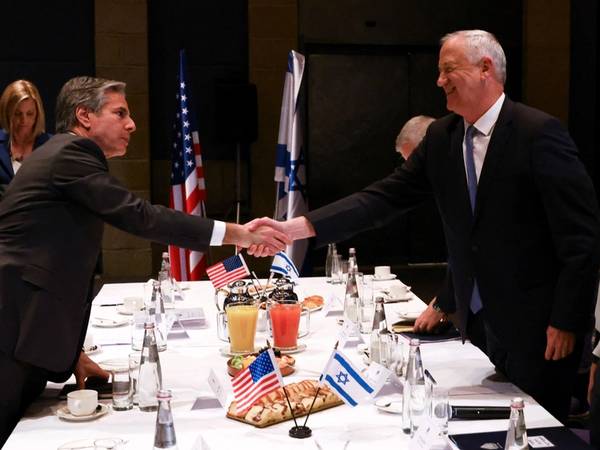The US Secretary of State has tried to assure Israelis that Washington will work with Tel Aviv to deny Iran atomic weapons, with or without a nuclear deal.
The issue of removing Iran's elite Revolutionary Guards (IRGC) from the US list of Foreign Terrorist Organizations (FTO), which Iran now expressly says is a pre-condition to agreeing to the restoration of the 2015 nuclear deal, Joint Comprehensive Plan of Action (JCPOA) appears to be at the center of Arab foreign ministers in Tel Aviv.
The US Secretary of State, Antony Blinken, who is also participating in a two-day summit attended by foreign ministers of the United Arab Emirates, Egypt, Morocco, and Bahrain, tried to reassure Israeli and Arab partners of the United States on Sunday that Iran will not be allowed to build a nuclear bomb whether the JCPOA is restored or not.
The extraordinary summit of the Arab countries that have normalized their relations with Israel in the past eighteen months is hosted by Israel’s prime minister, Naftali Bennett.
“But whether there’s a deal or not, our commitment to the core principle of Iran never acquiring a nuclear weapon is unwavering. And one way or another, we will continue to coordinate closely with our Israeli partners on the way forward,” Blinken said at a joint press conference with Israel’s foreign minister, Yair Lapid. “We are both committed, both determined, that Iran will never acquire a nuclear weapon,” he said.
The US has also sought to reassure Israel and Arab countries that it would not surrender to Iran's demand over delisting of the IRGC whose involvement in regional politics and conflicts – including Yemen, Lebanon, Iraq, and Syria.
Us allies in the region have long been concerned over the Biden Administration policy of restoring the JCPOA in exchange for lifting crippling sanction the former US administration imposed on Iran.
“This is not a deal that is intended to resolve that issue. Many in the region view the IRGC in the same way we view them. I can tell you that the IRGC will remain sanctioned under US law, and our perceptions, our views, our policy towards the IRGC have not changed,” the US Special Representative for Iran, Robert Malley, said at the Doha Forum Saturday.
But in a meeting with the Lebanese Prime Minister, Najib Mikati, on the side-lines of the Doha Forum on Monday, Supreme Leader Ali Khamenei's advisor and former foreign minister Kamal Kharrazi insisted that the IRGC is its national army and the country's national army could not be listed as a terrorist group. “The real thing is that IRGC is very important for Iran, and they are not going to compromise on that,” he said.
Seattle-based professor and political commentator Jalil Roshandel told Iran International Monday that in his view, the US has decided to restore the JCPOA but is still not sure about Iran's demand to delist the IRGC. It appears that under the immense pressure of Congress and US allies in the Middle East, the Biden administration is now more inclined to reject the demand, he said.
Roshandel said concerns over Iran's activities in the region may incite the participants in the summit in Israel to strike a security deal. "All of this is pressure on Biden [to reject Iran's demand] … And Iran has not shown any signs to assure the West that the IRGC will not behave as before in regional conflicts and be more friendly even if it is delisted."
